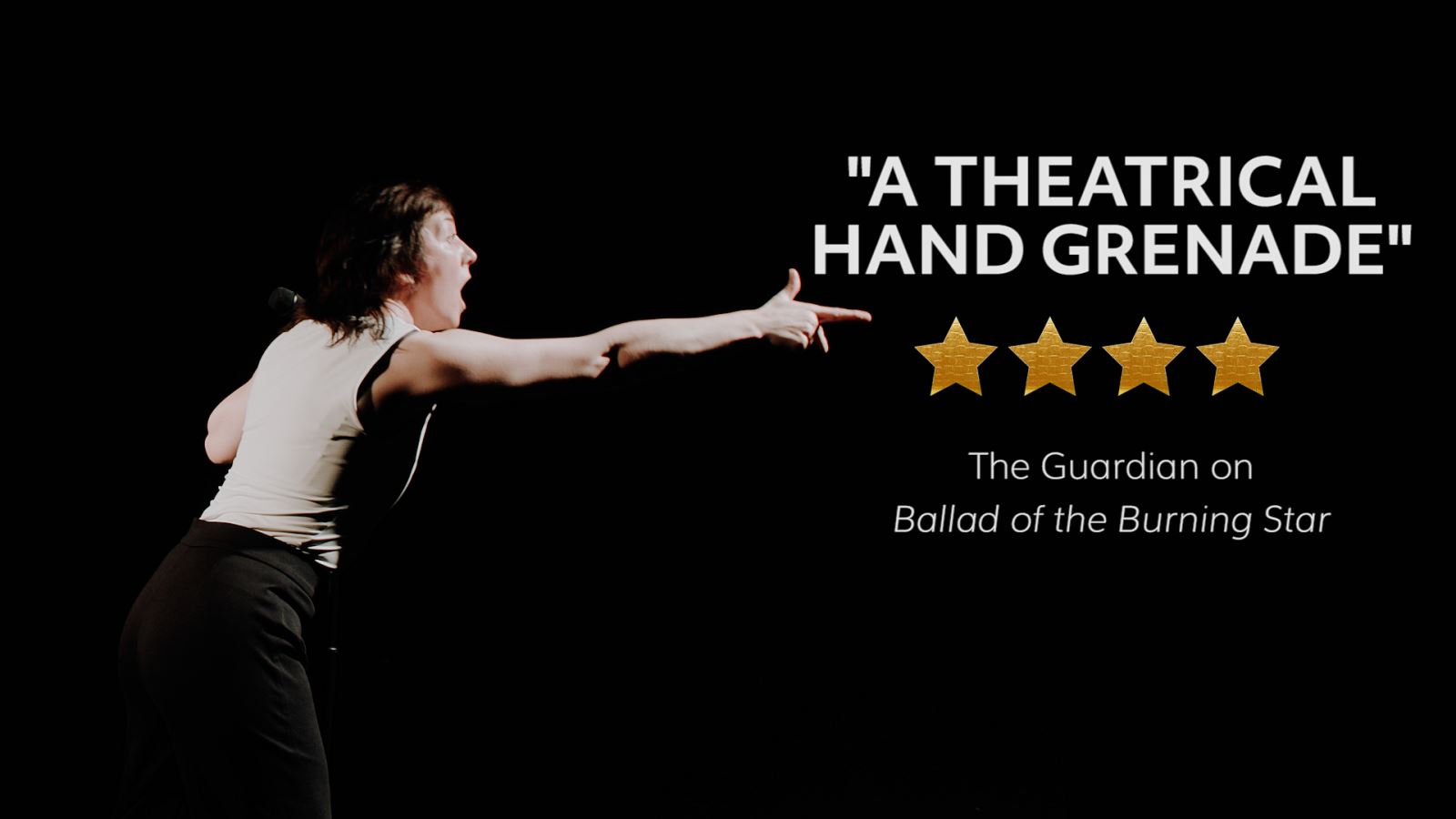
A fierce, funny look at the alternative stories of the villainised women in Greek mythology comes to the Dukes, Lancaster on the 11th & 12th June.
“This tour de force of physical theatre is unmissable” ★★★★ The Stage (on Odyssey)
Told through the eyes of Medusa as she watches the battle of Troy, Ad Infinitum takes a look at the alternative stories of the most notorious women in Greek mythology in a new show co-created and performed by long-term collaborator Deborah Pugh.
A bodiless head on the goddess Athena’s shield, the snake-haired Medusa watches over the battle, focusing on queens and prophets whose stories have been cast in the worst possible light. Casting Medusa as an archivist setting the record straight, history is retold with full nuance and colour as seen through a female gaze, and through the most powerful gaze in mythology. Told with the same high-energy physical storytelling as Ad Infinitum’s award-winning one-man Odyssey, their one-woman race through mythology is a fierce, funny take on female stories throughout history that have been forgotten, distorted or erased.
What if there was another take on the Trojan War you’d never heard? Enter Medusa: she was there. Monstrous gorgon? Snakes for hair? A turn-to-stone glare? Perhaps. But she was there - as a bodiless head strapped to the shield of a goddess. In forgotten and alternative stories about them, Iphigenia wasn’t the first child of Clytemnestra to be murdered by Agamemnon, Cassandra’s abilities were learned rather than god-given, Amazonian Queen Penthesilea wasn’t killed by Achilles, and Medusa was a protector of the ancient world. Beautiful Evil Things asks why the versions of the stories we know about these women are the most damning ones.
Co-creator and performer Deborah Pugh said, “Reseeing the stories of the Trojan War afresh through Medusa’s eyes has been a brilliant opportunity to review these well-worn classics and interrogate their familiar translations and tellings. How would a monstrous social outcast, murdered by a hero see things differently? Which characters would she connect to? How would she feel about gods and heroes having fallen foul of both of them? What would be her telling of these tales? And would they still feel so very… masculine? Some stories had to be unearthed, others reframed but this fabulously fearsome female gaze has been the perfect lens through which to view the tales of some truly phenomenal ancient wonder women, each as flawed, fearless and front footed as their male counterparts. Each stood strong and centre, driving their own story.”
Related
Comments
Comments are disabled for this post.
 to add an item to your Itinerary basket.
to add an item to your Itinerary basket.









